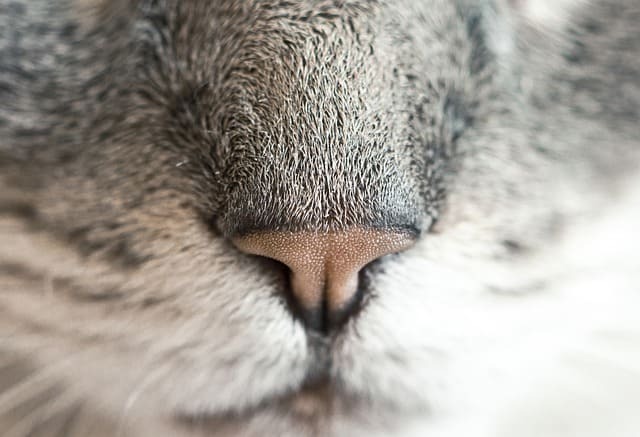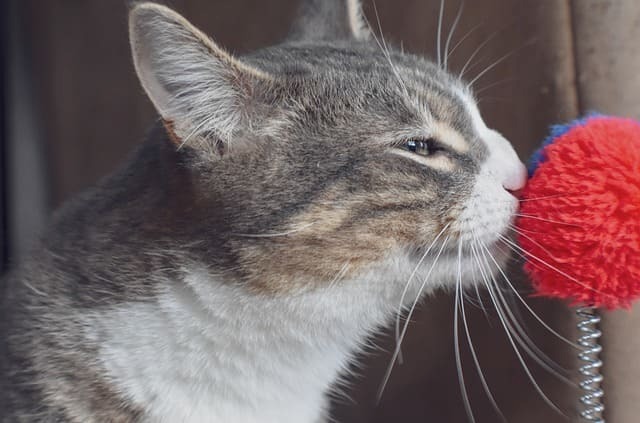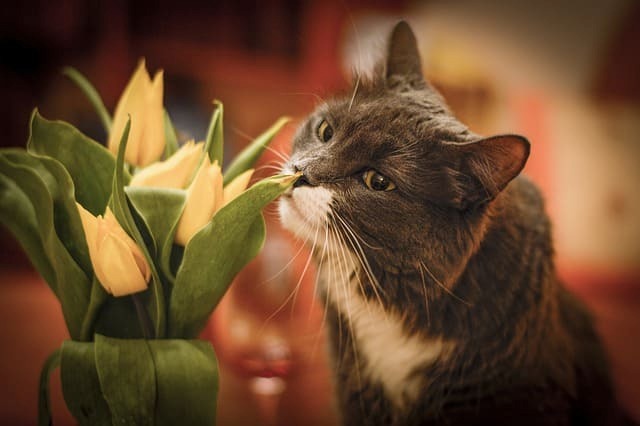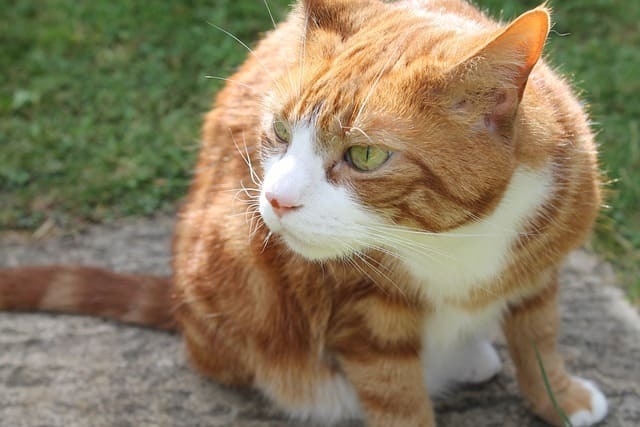

What Smells Do Cats Hate?
Cat food can smell pretty funky, but pets never seem to mind. Owners may wonder if there are any scents their cats can’t stomach. Read on to learn more about the odors that cause felines to turn up their whiskers.

Writer Animalia Team
7 min read

When cats left the woods about 12,000 years ago to live with humans, they had to make a few compromises. One of them was learning how to live in the small, enclosed spaces we call homes. The transition has meant getting used to all types of sensory stimuli, including unfamiliar (and often unpleasant) smells.
So what smells do cats hate? We’ll share 13 of them, but first, let’s take a closer look at your cat’s olfactory system.
All about your cat’s sense of smell
The feline sense of smell is still both powerful and useful for daily life. In the wild, it helps a cat to find a mate, locate food, and sense when trouble is near. Some cats have even made use of their nostrils to navigate home over great distances.
A cat’s nose is nothing to sneeze at. That little spot in the center of their face packs far more power than the much larger human nose. Research shows that a cat’s sense of smell is around 14 times better than ours. Humans only have 5 million olfactory receptors, while cats can have anywhere between 45 to 200 million.

That means cats are more sensitive to smells than their owners. They can even detect certain scents that we might miss. Through experience and studies, we know cats love certain smells and despise others. So what smells do cats hate? Here are several you should know about and, if possible, help them to avoid.
From bananas to dirty litter box: the smells your cat can’t stand
1. Certain herbs
Cats don’t like the smell of rosemary, rue, lavender, mint, Coleus caninus, marigolds, and thyme. Why do cats hate these smells? It’s not because they’re all toxic. While rue and lavender oil can cause adverse reactions, rosemary is non-toxic. Generally, cats hate strong, pungent smells. Surrounding a garden with an unpleasant, but non-poisonous plant like rosemary can help keep curious cats out of gardens.
2. Strong citrus aromas
A cat’s appetite originates with their sense of smell. They typically won’t eat the food they’re served if they don’t enjoy the smell. The bitter citric acid from lemons, oranges, grapefruit, and lime is a particularly unpleasant scent to cats. These fruits contain essential oils that are toxic to cats as well. Don’t be worried, however, about bringing oranges into your house. Cats typically won’t get near them.
3. Bananas
While you might like the smell of sweet ripe bananas, your cat is far less fond of it. Even though bananas aren’t toxic to cats, they contain a compound called ethyl acetate that keeps cats away.
4. Spices
While spices add flavor and nutrients to our meals, cats could most definitely do without them. As with herbs, cats don’t like spices with too-strong smells. Think how overpowering strong scents must be too creatures with such powerful noses!
At the top of a cat’s blacklist are spices like cinnamon, pepper, mustard powder, and curry powder. Some of these even include harmful compounds, so keep your cat away from spicy foods.
5. Pine, cedar, wintergreen, and menthol
A Christmas tree won’t put your cat in a holiday mood. In fact, pinewood and its resin are toxic to cats. The same applies to the red cedar. Watch out for the menthol found in peppermint too. Wintergreen’s another minty flavor that is anything but refreshing for felines.

6. A dirty litter box
Cats are fastidious, often sticking to highly particular hygiene habits. The last thing they want is a dirty litter box. Studies show cats will go so far as to avoid dirty litter boxes, often resulting in unwelcome surprises hidden throughout the house. That’s all the more reason to stick to a litter box-cleaning routine!
7. Household cleaning products
Most household cleaning products have strong scents that cats find unpleasant. Additionally, these products have chemicals like chlorine, ammonia, vinegar, and other fragrances that are toxic to cats. Keep cats away if you’ll be using these products in areas of the house they tend to frequent.
8. Old or spoiled fish
If you have lived with cats long enough, you know how picky they can be. Due to their sensitive noses, cats notice signs of food gone bad far sooner than humans. Even though they love fish, they can’t stand the smell of fish that’s past its prime.
9. Soaps and deodorants
Soaps and perfumes come in a wide variety, but just about all of them have the kind of strong smells that cats can’t stand. Like other household cleaning products, many soaps and deodorants contain harmful, poisonous chemicals.
10. Essential oils
Enthusiasts credit essential oils with a number of positive health effects. They’re an increasingly popular remedy for a host of ailments. For cats, however, these substances are often highly toxic and almost never pleasant.
Popular essential oils include rose, lavender, Roman chamomile, hyssop, grapefruit, myrrh, and cedar wood. The phenols, ketones, and terpenes can irritate cats or even lead to organ failure and death.
11. Eucalyptus
Eucalyptus is one essential oil in particular that cat owners may want to avoid. It’s often prescribed as a homeopathic remedy for asthma and nasal congestion. It’s toxic to cats, however, and contains potentially organ-harming compounds. The good news is that cats, in a sense, naturally protect themselves from it. They tend to dislike the smell of anything toxic to them. A full-grown cat is unlikely to ingest eucalyptus. The scent alone should repulse them.
12. The smell of other cats
It might surprise you to know that cats often dislike the smell of other cats. Why don’t cats like the smell of other cats? Because they’re highly territorial.It’s possible that the smell of another cat smells like an invasion. Watch out for the scent of unfamiliar cats on your clothes!

13. Tomatoes and onions
Don’t be surprised if your cat leaves the kitchen when you’re chopping tomatoes and onions, it’s because they hate the smell. And it’s for a good reason! Onions do more than just cause cats to cry. They can damage a feline’s red blood cells!
Tomatoes are no good either, especially the green ones. A cat’s stomach can’t digest tomatoes. They can cause vomiting, severe stomach pain, and diarrhea. Other vegetables that can harm your cats include the rest of the members of the allium family – garlic, shallots, leeks, scallions, and chives.
What kinds of odors are toxic to cats?
Not all cat-repellent odors are toxic. Some, however, cause serious problems for cats. These include: Peppermint oil, Ylang Ylang oil, Tea tree oil, Eucalyptus, Cinnamon, Cloves, Pine, Wintergreen, Citrus oils
You can’t always sniff out pet health emergencies. Whenever sudden expenses pop up, cat insurance from Animalia can help you confidently provide the highest quality of care. Get a quote today to learn more.





We offer the most
comprehensive coverage
out there
car with a spare tire for life’s bumps.
Having Animalia is like a pimped-out
Rolls Royce with a swimming pool
in the trunk.



Get your pet insurance quote
Pet type
- Dog
- Cat




